Analysis and commentary on the Network’s experiences coordinating climate-resilient development.
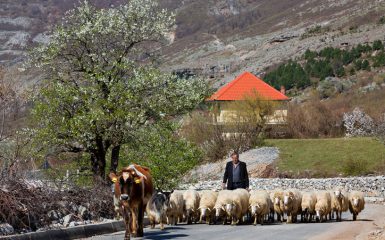
Striving to Adapt to Climate Change: Lessons from Albania
By Laureta Dibra, Lindita Tafaj and Alexandre Borde
Albania is suffering from the effects of extreme weather events such as flooding, droughts and heat waves. During the last 10 years, floods have devastated regions and cities such as Shkodër, Tiranë, Vlorë and Fier, and posed a significant threat to Albania’s economy, ecosystems and people’s health. Recurring floods caused USD 218 million in damage […]
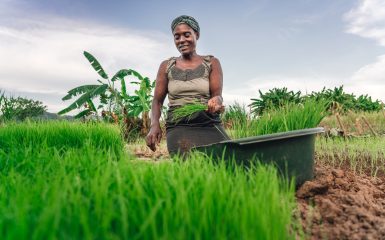
Malawi Gears Up to Adapt to Climate Change
By Donald Reuben Kamdonyo, Ph.D., Climate Change Specialist, Kamdonyo & Associates, Lilongwe, Malawi
Globally, climate change has been recognized as one of the biggest challenges that humanity is facing today. It has serious worldwide implications on economic development, food security and poverty eradication for developing countries, especially for least-developed countries like Malawi. All of Malawi’s socioeconomic sectors have been, and will continue to be, affected by climate change […]

South Africa Hosts Climate Science and Policy Winter School for Government Officials
South African government officials met in Cape Town last month for a five-day workshop to learn more about the intersection of climate science and policy. This workshop, which took place from July 1 to 5, was a special session of the accredited Winter School offered by the University of Cape Town and organized by the […]
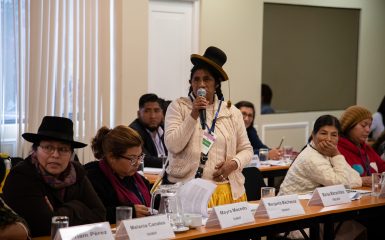
Peru Will Be the First Country in the World With an Indigenous Climate Platform
Press release | Peruvian Ministry of Environment
(Lea abajo la versión en español) LIMA — Peru will be the first country in the world to have an Indigenous Climate Platform, putting it at the forefront of global climate action. This milestone initiative will strengthen the recognition and dissemination of Indigenous knowledge and practices that contribute to the comprehensive management of climate change, […]
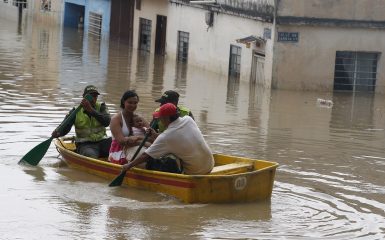
Environmental Journalists Meet to Build Colombia’s NAP Communications Strategy
Colombia’s National Planning Department (DNP) and Ministry of Environment and Sustainable Development (MADS) is hosting a high-level breakfast meeting today in Bogota with influential Colombian environmental journalists. Supported by the NAP Global Network, through the U.S. In-Country Support Program for Colombia, the event aims to foster knowledge sharing among journalists from the major Colombian outlets, […]

Zimbabwe’s Green Climate Fund (GCF) – National Adaptation Planning (NAP) Process Roadmap Development
By Emily F. Matingo, Climate Change Scientist, Ministry of Lands, Agriculture, Water, Climate and Rural Resettlement, Zimbabwe
See also: Zimbabwe’s NAP Roadmap. On February 20, over 100 participants gathered in Bulawayo, Zimbabwe, to attend the launch of Zimbabwe’s National Adaptation Plan (NAP) Readiness Project, financed by the Green Climate Fund. Before embarking on the GCF–NAP Readiness Project, the Government of Zimbabwe developed its NAP roadmap. The primary goal of the NAP roadmap is […]

Scaling Up Adaptation: Strengthening alignment of the National Adaptation Plan (NAP) process and the Nationally Determined Contribution (NDC) in Grenada
St. George’s, February 2, 2019 – On January 31 and February 1, the NAP Global Network and the Grenadian Ministry of Climate Resilience, the Environment, Forestry, Fisheries, Disaster Management and Information in collaboration with the Integrated Climate Change Adaptation Strategies (ICCAS) program co-hosted the workshop “Scaling Up Adaptation: Strengthening alignment of the NAP process and […]

Key Actions Advancing Fiji’s NAP Process
A conversation with Adrian Fenton
In an interview conducted by Clare Church, the National Adaptation Plan (NAP) Global Network spoke with Adrian Fenton, embedded advisor to the Fijian Government, who has been supporting the Ministry of Economy with the development of Fiji’s NAP process. Some answers may have been shortened for clarification and brevity.
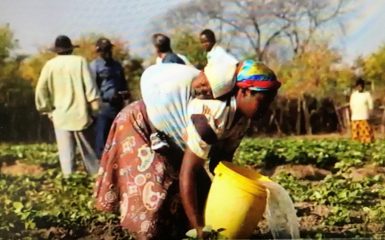
Blog Perspective: Zimbabwe’s National Adaptation Plan experience
By Emily F. Matingo, Climate Change Scientist, Ministry of Lands, Agriculture, Water, Climate and Rural Resettlement, Zimbabwe
Zimbabwe is experiencing more hot and fewer cold days than before as a result of climate change and climate variability. The country’s annual mean surface temperature has warmed by about 0.40C from 1900 to 2000. Zimbabwe’s third National Communication to the United Nations Framework Convention on Climate Change (UNFCCC) asserts that the period from 1980 […]